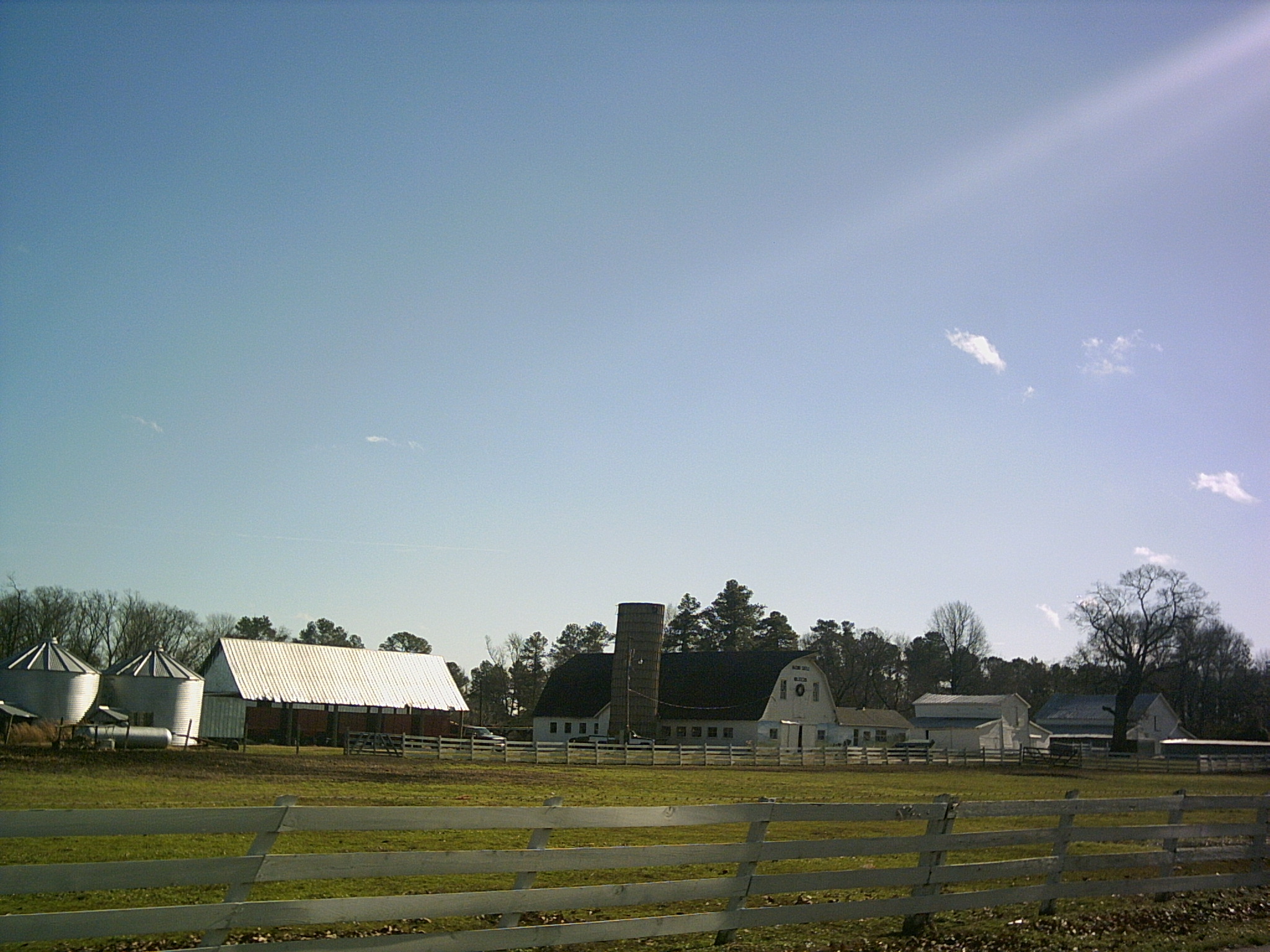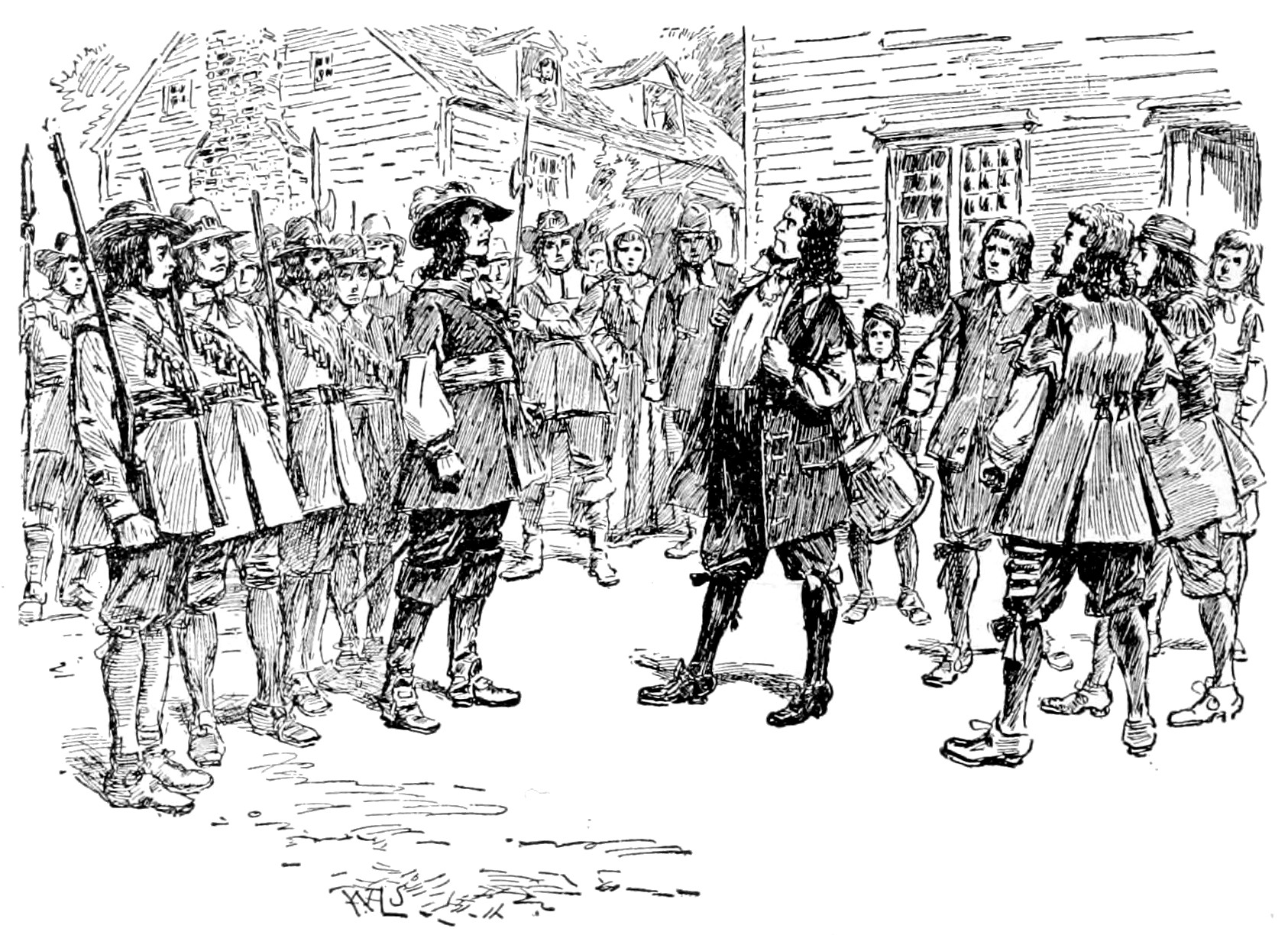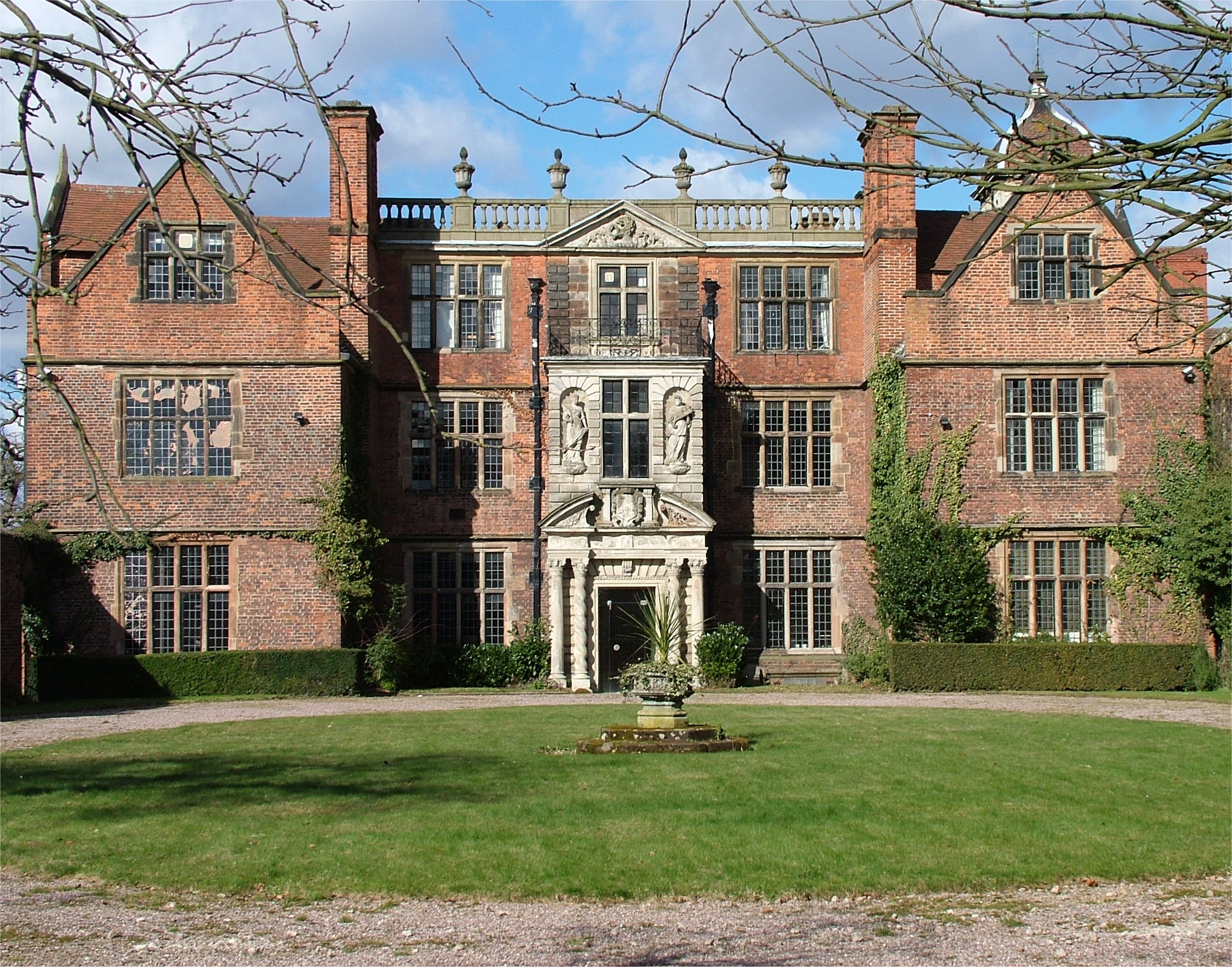|
Surry County, Virginia
Surry County is a county in the Commonwealth of Virginia. As of the 2020 census, the population was 6,561. In 1652, Surry County was formed from the portion of James City County south of the James River. For more than 350 years it has depended on an agricultural economy. The county has 19 sites listed on the National Register, including a landmark occupied in 1676 known as Bacon's Castle and Chippokes Plantation (now a state park). The Jamestown Ferry provides easy access to Virginia's Historic Triangle, featuring Jamestown, Williamsburg, and Yorktown, linked by the National Park Service's Colonial Parkway. The county is known for farming, curing Virginia Hams, and harvesting lumber, notably Virginia pine. History During the times of the Virginia Colony, Surry County was formed in 1652 from a portion of James City County (one of the original 8 counties formed in 1634) south of the James River. It was named for the English county of Surrey. Surry County initially co ... [...More Info...] [...Related Items...] OR: [Wikipedia] [Google] [Baidu] |
Surry County Courthouse Complex
Surry County Courthouse Complex is a historic courthouse complex located at Surry, Virginia, Surry, Surry County, Virginia. The complex consists of the county courthouse, old clerk's office (1825–1826), VPI Extension office (c. 1907), the Commonwealth Attorney's office, the Commissioner of Revenue's office, a storage building, a Confederate memorial, and general district court building (c. 1840). The county courthouse building was built in 1923, and is a two-story, seven bay, Neoclassical architecture, Classical Revival style brick building. It features a hexastyle Ionic order portico that dominates its front facade. an''Accompanying photo''/ref> It was listed on the National Register of Historic Places in 1986. References External links County courthouses in Virginia Courthouses on the National Register of Historic Places in Virginia Neoclassical architecture in Virginia Government buildings completed in 1923 National Register of Historic Places in Surry County, Vir ... [...More Info...] [...Related Items...] OR: [Wikipedia] [Google] [Baidu] |
Colonial Parkway
Colonial Parkway is a scenic parkway linking the three points of Virginia's Historic Triangle, Jamestown, Williamsburg, and Yorktown. It is part of the National Park Service's Colonial National Historical Park. Virginia's official state classification for the parkway is State Route 90003. With portions built between 1930 and 1957, it links the three communities via a roadway shielded from views of commercial development. The roadway is toll-free, is free of semi trucks, and has speed limits of around . As a National Scenic Byway and All-American Road (one of only 31 in the U.S.), it is also popular with tourists due to the James River and York River ends of the parkway. Bridges and interchanges For most roads it crosses it does not have an intersection with that road. It normally goes on a bridge, under a bridge, or in a tunnel (the only tunnel runs beneath Colonial Williamsburg). Examples of this happening: when it crosses Interstate 64 and US Route 60. When it crosse ... [...More Info...] [...Related Items...] OR: [Wikipedia] [Google] [Baidu] |
Sussex County, Virginia
Sussex County is a rural county located in the Commonwealth of Virginia. As of the 2020 census, the population was 10,829. Its county seat is Sussex. It was formed in 1754 from Surry County. The county is named after the county of Sussex, England. Sussex County is included in the Greater Richmond Region. History Native Americans may have settled near Cactus Hill along the Nottoway River in what became Sussex county as long as 10,000 years ago. The Nottoway people, speaking an Iroquoian language, were later part of the Powhatan Confederacy. When colonists arrived from England in 1607, some traveled along the Nottoway River, but when they established the first counties, James City County included both sides of the James River all the way to the North Carolina line. The south side of the James River became Surry County in 1652. Virginia's General Assembly formed Sussex County from the southwestern end of Surry County in 1754. Sussex County has maintained a predominantly ... [...More Info...] [...Related Items...] OR: [Wikipedia] [Google] [Baidu] |
Cobham, Surry County, Virginia
Cobham was a small town in Surry County, Virginia. It was established by an Act of the Virginia House of Burgesses in 1691, when each county in the Virginia Colony was directed set aside of land for a town. Storehouses were to be built for products imported and tobacco to be exported. It was ordered that the county sell half-acre lots for its citizens to inhabit the town. It was located at the mouth of Gray's Creek at the James River across and somewhat downstream from Jamestown. It was probably named for Cobham, in Surrey, England. Cobham was active during the 18th and early 19th centuries, but eventually became one of the Former counties, cities, and towns of Virginia. According to the Surry County Historical Society, "today there is little evidence of the town, which became mostly farmland." The society reports that "farmers, while plowing the fields, have run into old foundations, as well as finding locks, broken china, and even a long-barreled pistol." There is also a Cobh ... [...More Info...] [...Related Items...] OR: [Wikipedia] [Google] [Baidu] |
Henrico County, Virginia
Henrico County , officially the County of Henrico, is located in the Commonwealth of Virginia in the United States. As of the 2020 census, the population was 334,389 making it the fifth-most populous county in Virginia. Henrico County is included in the Greater Richmond Region. There is no incorporated community within Henrico County; therefore, there is no incorporated county seat either. Laurel, an unincorporated CDP, serves this function. Named after the settlement of Henricus, Henrico was first incorporated as the City of Henrico. In 1634, Henrico was reorganized as Henrico Shire, one of the eight original Shires of Virginia. It is one of the United States' oldest counties. The City of Richmond was officially part of Henrico County until 1842, when it became a fully independent city. The present-day Henrico County curves around the City of Richmond, surrounding it to the west, the north, and the east. The county is bounded by the Chickahominy River to the north a ... [...More Info...] [...Related Items...] OR: [Wikipedia] [Google] [Baidu] |
Curles Neck Plantation
Curles Neck Plantation (also known as Curles Neck Farm) is located between State Route 5 and the north bank of the James River in the Varina district of Henrico County, Virginia. One of the great James River Plantations, Curles Neck has remained in active use for almost 400 years and remains a privately owned working farm which is not currently open to the public. As "Curles Neck Farm", a 5600-acre property was listed on the U.S. National Register of Historic Places in 2009. an''Accompanying six photos at Virginia Historic Landmarks Commission, undated''/ref> History In November 1635, a year after the formal designation of Henrico County as one of 8 shires (or counties) in the Virginia Colony, a land patent for was granted to Captain Thomas Harris, who had apparently served under Sir Thomas Dale. The tobacco farm was referred to by early settlers as "Longfield", but soon thereafter became known as Curles Neck. Captain Harris served in the House of Burgesses at Jamestown a ... [...More Info...] [...Related Items...] OR: [Wikipedia] [Google] [Baidu] |
Nathaniel Bacon (colonist)
Nathaniel Bacon (January 2, 1647October 26, 1676) was a colonist of the Virginia Colony, famous as the instigator of Bacon's Rebellion of 1676, which collapsed when Bacon died from dysentery. Early life and education Bacon was born on January 2, 1647, in Friston Hall in Suffolk, England, to influential landowner parents Thomas Bacon and his wife Elizabeth (daughter of Sir Robert Brooke of Cockfield Hall, Yoxford and his wife Elizabeth). Nathaniel was his father's only son, and had one full sister, and a half-sister by his father's second wife Martha (Reade), his natural mother having died in 1649 when he was two years old. He was educated at the University of Cambridge, where he was admitted as a Fellow-Commoner at St Catharine's College in 1661. He travelled around Europe (Germany, Italy, Switzerland, France, Netherlands) in 1663–1664 with the celebrated naturalist John Ray and fellow pupils Francis Willughby and Philip Skippon. At the end of April 1664, in Naples ... [...More Info...] [...Related Items...] OR: [Wikipedia] [Google] [Baidu] |
William Berkeley (governor)
Sir William Berkeley (; 16059 July 1677) was a colonial governor of Virginia, and one of the Lords Proprietors of the Colony of Carolina. As governor of Virginia, he implemented policies that bred dissent among the colonists and sparked Bacon's Rebellion. A favourite of King Charles I, the king first granted him the governorship in 1642. Berkeley was unseated following the execution of Charles I, and has his governorship restored by King Charles II in 1660. Charles II also named Berkeley one of the eight Lords Proprietors of Carolina, in recognition of his loyalty to the Stuarts during the English Civil War. As governor, Berkeley oversaw the passage of many of Virginia's most restrictive laws governing enslaved people, including the 1662 slave code that determined slavery to be inheritable through the condition of the mother. As proprietor of Green Spring Plantation in James City County, he experimented with activities such as growing silkworms as part of his effo ... [...More Info...] [...Related Items...] OR: [Wikipedia] [Google] [Baidu] |
Bacon's Rebellion
Bacon's Rebellion was an armed rebellion held by Virginia settlers that took place from 1676 to 1677. It was led by Nathaniel Bacon against Colonial Governor William Berkeley, after Berkeley refused Bacon's request to drive Native Americans out of Virginia. Thousands of Virginians from all classes (including those in indentured servitude) and races rose up in arms against Berkeley, chasing him from Jamestown and ultimately torching the settlement. The rebellion was first suppressed by a few armed merchant ships from London whose captains sided with Berkeley and the loyalists. Government forces arrived soon after and spent several years defeating pockets of resistance and reforming the colonial government to be once more under direct Crown control. Bacon's rebellion was the first rebellion in the North American colonies in which discontented frontiersmen took part (a somewhat similar uprising in Maryland involving John Coode and Josias Fendall took place shortly afterwa ... [...More Info...] [...Related Items...] OR: [Wikipedia] [Google] [Baidu] |
Castle
A castle is a type of fortified structure built during the Middle Ages predominantly by the nobility or royalty and by military orders. Scholars debate the scope of the word ''castle'', but usually consider it to be the private fortified residence of a lord or noble. This is distinct from a palace, which is not fortified; from a fortress, which was not always a residence for royalty or nobility; from a ''pleasance'' which was a walled-in residence for nobility, but not adequately fortified; and from a fortified settlement, which was a public defence – though there are many similarities among these types of construction. Use of the term has varied over time and has also been applied to structures such as hill forts and 19th-20th century homes built to resemble castles. Over the approximately 900 years when genuine castles were built, they took on a great many forms with many different features, although some, such as curtain walls, arrowslits, and portcullises, wer ... [...More Info...] [...Related Items...] OR: [Wikipedia] [Google] [Baidu] |
Jacobean Architecture
The Jacobean style is the second phase of Renaissance architecture in England, following the Elizabethan style. It is named after King James VI and I, with whose reign (1603–1625 in England) it is associated. At the start of James' reign there was little stylistic break in architecture, as Elizabethan trends continued their development. However, his death in 1625 came as a decisive change towards more classical architecture, with Italian influence, was in progress, led by Inigo Jones; the style this began is sometimes called Stuart architecture, or English Baroque (though the latter term may be regarded as starting later). Courtiers continued to build large prodigy houses, even though James spent less time on summer progresses round his realm than Elizabeth had. The influence of Flemish and German Northern Mannerism increased, now often executed by immigrant craftsmen and artists, rather than obtained from books as in the previous reign. There continued to be very little ... [...More Info...] [...Related Items...] OR: [Wikipedia] [Google] [Baidu] |
Arthur Allen (Virginia Colony)
Arthur Allen may refer to: Politicians *Arthur Allen (died 1558), MP for Ludgershall * Arthur Allen (Virginia politician) (died 1710), Virginia colonial politician, 22nd Speaker of the Virginia House of Burgesses, 1686–1688 * Arthur Acland Allen (1868–1939), British Liberal Party politician, MP for Christchurch and Dunbartonshire * Arthur Allen (Labour politician) (1887–1981), British politician Others * Arthur Allen (author) (born 1959), American author and journalist * Arthur Allen (Virginia Colony) (died 1669), commissioned Arthur Allen House * Arthur Allen II (c. 1652–1710), son of the above, inherited Arthur Allen House, possibly the same person as the Virginia politician *Arthur A. Allen (1885–1964), American ornithologist *Arthur Leigh Allen The Zodiac Killer is the pseudonym of an unidentified serial killer who operated in Northern California in the late 1960s. The case has been described as the most famous unsolved murder case in American history. It became ... [...More Info...] [...Related Items...] OR: [Wikipedia] [Google] [Baidu] |







